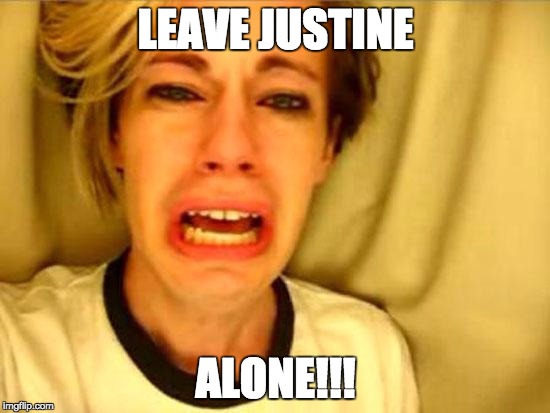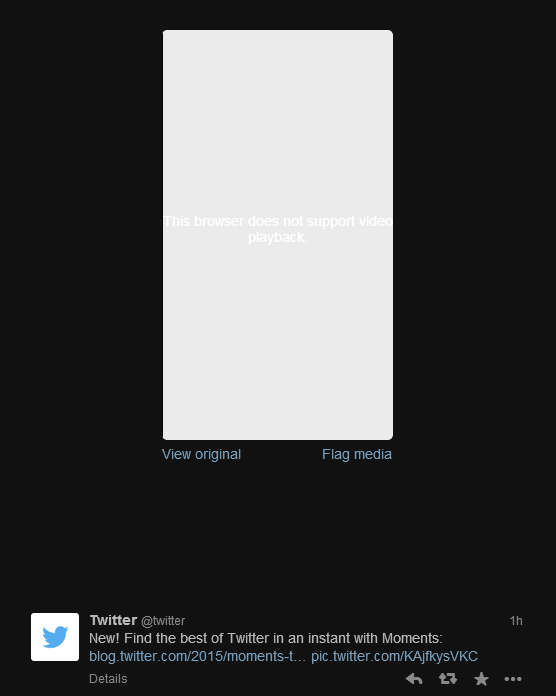Trump Tweets as Valuable as Media Coverage?

I am legitimately impressed that presidential candidate Donald Trump composes his own Tweets. I am also legitimately concerned for the sanity of his communications director. However, the idea that he is getting “free press” in a specific dollar amount for each Tweet is ridiculous to anyone (like me) who has had to talk people down from using the ludicrous, and flat-out-wrong, ad-value-equivalency metric. Call it valuable, even more valuable than ads (meh), but do not equate it with paid media. So can it, losers.
Twitter Moments
I love to look askance at new fancy features of social networks (Facebook video profiles, please die), but I have to say I like Twitter Moments. Why? Twitter has become more of an information discovery tool than a conversation one, so putting together a catchier curation of some of the day’s topics of interest makes sense. Some people say it won’t save Twitter; maybe so, and sure they would do well to figure out revenue opportunities, but I can only think of one of the things I like best about the New York Times app: the morning notification of the day’s top stories. If Twitter can figure out how to get me (and a few million of my close friends) to make a habit of checking out Moments, maybe there is something there.

Side note: I first saw Moments posted as a video in Tweetdeck, which did not support the video playback. Twitter, of course, owns Tweetdeck. Oopsie.
Snip.ly: Hijacking Web Sites or Annotating Shared Links?
After all the recent outcry about ad blockers and how they will destroy advertising, now I see complaints about a service called Snip.ly. It seems that Snip.ly, a URL-shortening and sharing service, uses frames to let sharers attach a note over the page they are sharing. This can take the form of a promotion or ad, so the question is: is Snip.ly hijacking your web site’s precious real estate, or is it allowing users (including businesses who might recommend good content as a way of getting attention) to annotate shared links with “post-its” for the friends and customers with whom they share? I’m sympathetic to the hijacking argument, but I am not 100% convinced. Would you be mad if a local merchant recommended you a book and gave you a bookmark with an ad for their services on it? Perhaps that’s an apt analogy. I’ll certainly think more on this, but I have learned (from myself) not to instantly take the jeremiads of a marketing blogger as gospel. Let’s debate this sucker.
https://www.youtube.com/watch?t=2&v=egEMs31M9dE
Parents, Kids & Social Media: Time to Stop and Be Smart
My buddy Jeff Esposito at Kaspersky wrote a post on how parents should think about privacy (and dignity) regarding their children and social media. While I argue that making your profile private isn’t a preference for a lot of people, I strongly believe that being private about your kids is crucial. It’s great that people are proud of their children, but who really needs to know? It’s easy to set kid photos to private on Facebook, Flickr and other sites, and everyone should do so for kids under a certain age. I always set photos and videos to private for young kids- and that goes triple for other people’s kids. Now that my son is in high school and his teams’ exploits make the papers (notice I’m not linking here, see “dignity” below), I don’t bother with that anymore, but pre-high school there was never a question. That’s smart privacy.
Dignity comes into play when kids are old enough to have their own social media accounts. Kids don’t want you to play along more than necessary (I know- posting a “cute kid” photo when my son first joined Facebook, and tagging him, did not go over well), so don’t embarrass, shame them or otherwise impinge on their fun. That’s not the same as saying don’t monitor and correct bad behavior, but back off, mom and dad.
Leave Justine Alone!
Remember that communications professional who made a tacky, offensive AIDS joke and got fired while she was flying to Africa? Justine Sacco got excoriated – crucified, really, and worse – on social media, to an extent far beyond the reach of her crime. She was even featured in Jon Ronson’s book So You’ve Been Publicly Shamed, which is a worthy read even if it could have gone further in examining the gender differences in online shaming (that is, what women have to endure is generally far more disgusting and threatening than the abuse directed at men online). Now she’s found good work, as PR for the fantasy sports gaming (gambling?) site FanDuel.
Controversial company? Perhaps. Getting some crisis communications chops as FanDuel (with rival Draft Kings) is accused of the gambling equivalent of insider trading? Definitely
Heap scorn because she is doing her job? Get lost, New York Post.



Thanks for the commentary on my Sniply post and encouraging people to think critically about this, as they should. While it is POSSIBLE for people to use this for good, it is likely they will use it for bad, because they can.
With the turmoil in the advertising industry, it’s unlikely that Sniply or similar services are going away soon. In the end, you will have to decide whether the possibility of increased traffic is worth the risk of giving up control of what is displayed on your website.
But the essential point is, it should be your decision.
Nobody should EVER be forced to display ads from strangers on their website without their knowledge, consent or compensation. Period.
Even Sniply admits their business model is not sustainable. We should be against any service that encourages corruption. Thanks again for moving the dialogue forward.